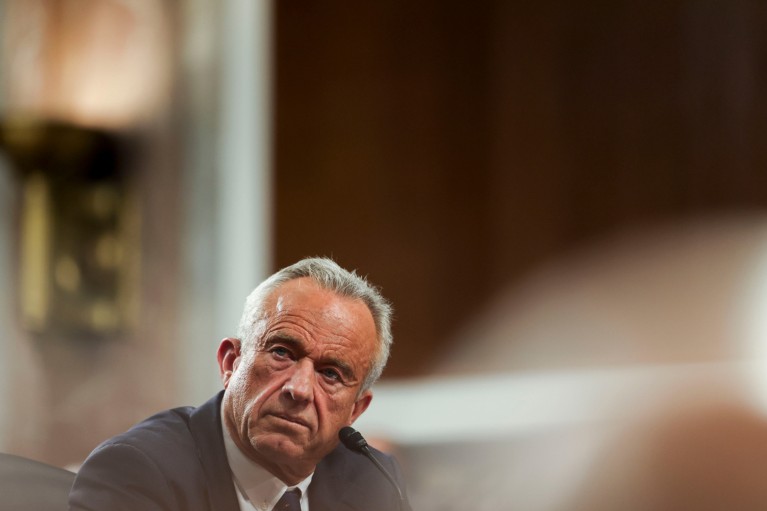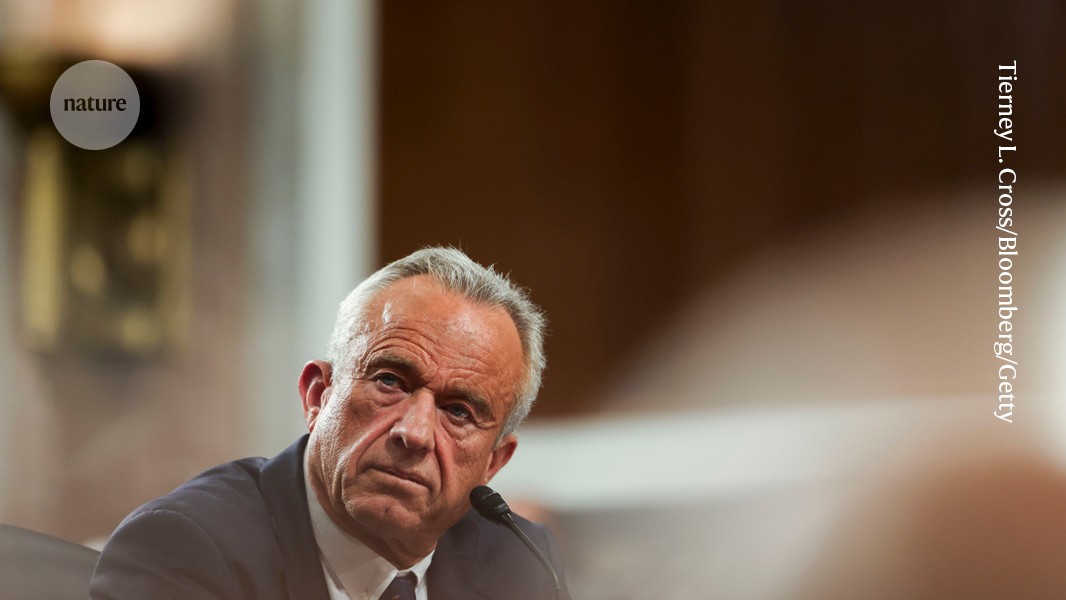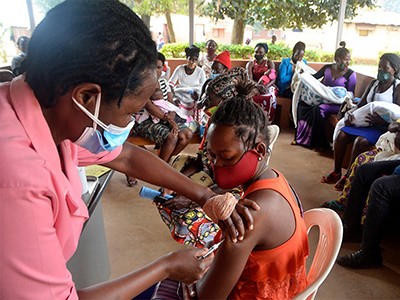
Robert F. Kennedy Jr now oversees the US Centers for Disease Control and Prevention, which he last year called a ‘cesspool of corruption’. Credit: Tierney L. Cross/Bloomberg/Getty
Scientists are bracing for major changes in the direction of US biomedical research as Robert F. Kennedy Jr, who has promoted vaccine misinformation and public-health conspiracies, gains control over a vast swathe of science policy.
The Senate voted today to confirm Kennedy as President Donald Trump’s secretary of the Department of Health and Human Services, which has an annual budget of roughly US$1.7 trillion and includes the Centers for Disease Control and Prevention, the Food and Drug Administration (FDA) and the National Institutes of Health (NIH) — the world’s largest funder of biomedical research. Kennedy has embraced some fields of biomedical research. But he has shown hostility to others, and has rejected established science on the efficacy of COVID-19 vaccines, the safety of vaccines in general and other topics. (Kennedy told the Senate that he supports vaccines and believes that they have saved lives.)
“The future of America as a superpower in research appears grim,” says Theodora Hatziioannou, a virologist at the Rockefeller University in New York City, who creates new models for studying HIV ― which Kennedy has falsely suggested is not the cause of AIDS. “Even on issues he claims he supports, he does not follow scientific evidence. Picking a person like this to lead is like having the wolf guard the sheep.”
False dichotomy
During his own presidential campaign, Kennedy said that he would prioritize research on chronic diseases and would give infectious-disease research at the NIH “a break” for eight years. Speaking before a Senate committee in January, Kennedy asserted that chronic conditions such as obesity, diabetes, asthma and some cancers have historically received less attention than infectious diseases, but are mostly responsible for rising healthcare costs. (Data from the NIH show that cancer alone receives more federal funding than that allotted to all infectious diseases combined.)
Uneven attention hampers the drive to control infectious diseases
Even some researchers who could benefit from an emphasis on chronic disease are wary. Eric Lau, a cancer researcher at the Moffitt Cancer Center in Tampa, Florida, says that although it would certainly be nice to see more money poured into studying cancer, the federal government should focus on increasing funding for biomedical research in general.
Both he and Larry Schlesinger, a physician-scientist and chief executive of the Texas Biomedical Research Institute in San Antonio, say that the idea of cutting one field to benefit another creates a false dichotomy between chronic and infectious disease that isn’t rooted in scientific reality.
As an example of how tightly the two are linked, researchers cite increasing evidence that some chronic conditions stem from infectious diseases: infection with human papillomavirus (HPV), for instance, can cause cancer of the cervix and other tissues. “Prioritizing chronic conditions increasingly means prioritizing infectious diseases,” says Schlesinger, who was himself diagnosed with oral cancer after an infection with HPV decades before. “We are appreciating more and more that infections, and the inflammation they cause, play an important role in these chronic conditions.”
Scientists also say that the ongoing outbreak of bird flu, which has made at least 68 people in the United States ill since the start of 2024, makes this an especially bad time to cut research into infectious diseases.
Focus on food
As part of his ‘Make America Healthy Again’ pledge, Kennedy has repeatedly called for further studies into diet and nutrition, as well as research on the links between environmental pollution and human health. During his January hearing, Kennedy said that scientists “know” that obesity is caused by “an environmental toxin”, and asked why researchers haven’t dedicated themselves to finding and eliminating it.
Food systems: seven priorities to end hunger and protect the planet




